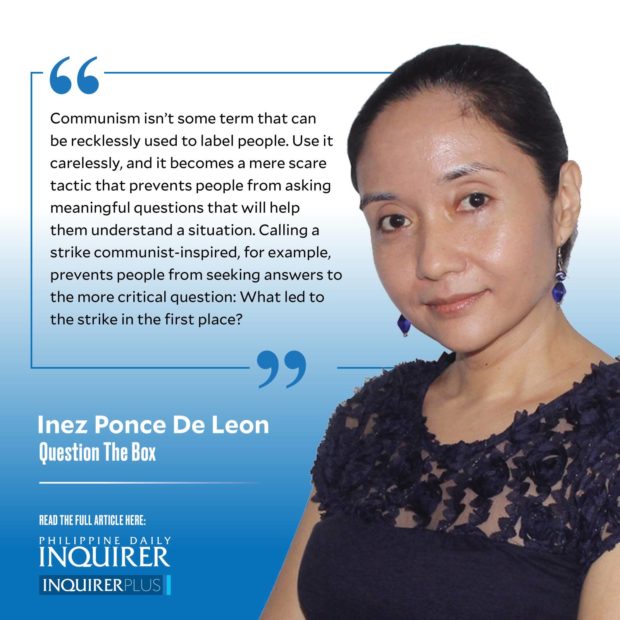Green cows, milking cows
 Public discourse is peppered with terms designed to frighten us, kind of the way we were told that the security guard would take us away if we misbehaved, or the old lady next door would eat us if we didn’t finish our dinner.
Public discourse is peppered with terms designed to frighten us, kind of the way we were told that the security guard would take us away if we misbehaved, or the old lady next door would eat us if we didn’t finish our dinner.
For instance: Communist.
It’s bandied about as both threat and insult. But what is it, really?
Communism is a broad term with applications in philosophy, sociology, politics, and economics. There are many iterations of it arising from its original Marxist form, but those multiple versions have common propositions.
Communism defines profit-driven society as a problem, especially when this profit goes only to a small number of people who hardly do any work. The philosophy argues that putting power in the hands of a few also enables the few to exploit the many. It advocates for a classless society where all property is publicly owned, and where people work in posts best suited to their abilities, with the pay they deserve.
This sounds like a utopia on paper, but it is difficult to implement. Russia and China are the exemplars of where communism can go wrong: The state owns all property, but, hungry for more, stretches its authoritarian tentacles. It suppresses dissent and controls the media. It monopolizes ownership of resources, effectively creating state capitalism.
It is this version of communism that has been widely criticized and even joked about. Capitalism: You have two cows; you sell one and buy a bull; you multiply your cows and live on the interest. Communism: You have two cows; the government takes both and gives you the milk.
Whatever the case, the fact remains: Communism isn’t some term that can be recklessly used to label people. Use it carelessly, and it becomes a mere scare tactic that prevents people from asking meaningful questions that will help them understand a situation.
Calling a strike communist-inspired, for example, prevents people from seeking answers to the more critical question: What led to the strike in the first place?
In the current case, it was an early 2000s, poorly implemented, well-intentioned law that called for jeepney modernization by putting the burden of payment on drivers who barely have enough to feed their families. In the current case, the government orders drivers to hand over their savings, all while a plan to modify the Constitution, reportedly costing billions of pesos, is being railroaded in Congress.
If the strike was inspired by communism, then pray tell: What part of communism inspired the strike? The part where the power is in the hands of the few? The part where people don’t get just compensation? The part where the few exploit the many?
Those were not inspired by communism. Those are the propositions of communism inspired by a government that demands money from those who can least afford to give it while overpaying those who already have more than enough.
Name-calling, moreover, kills learning. It is irresponsible, especially by someone who purports to support students. It is contrary to the critical thinking characteristic of true education.
And to castigate teachers who support the strikers? That also makes people stop asking the critical question: What exactly is the problem of education that is supposedly solved by more hours in a physical classroom?
We’ve had kids in school for ages, but they haven’t pulled themselves out of poverty, and our test scores are still in the gutter. The problem is broader than classroom attendance. Kids are undernourished, so they can’t study. Teachers can’t teach because they’re undertrained and underpaid, and yet are still expected to shell out their own money to enhance the classroom experience. We don’t have a good internet infrastructure to support online learning. Teachers, knowledge, and education are mocked widely.
No one wants children to remain uneducated and poor, but it is not presence in a classroom that will remedy learning losses. It is a well-planned educational system, which considers the needs of both learners and educators, that will help us all get out of poverty.Our government is not destitute. It just doesn’t allot money in the places where change can happen. It expects people to work with no funding and then gets angry when they protest.
They took away our cows. They want us to be happy with a drop of milk.
iponcedeleon@ateneo.edu




















